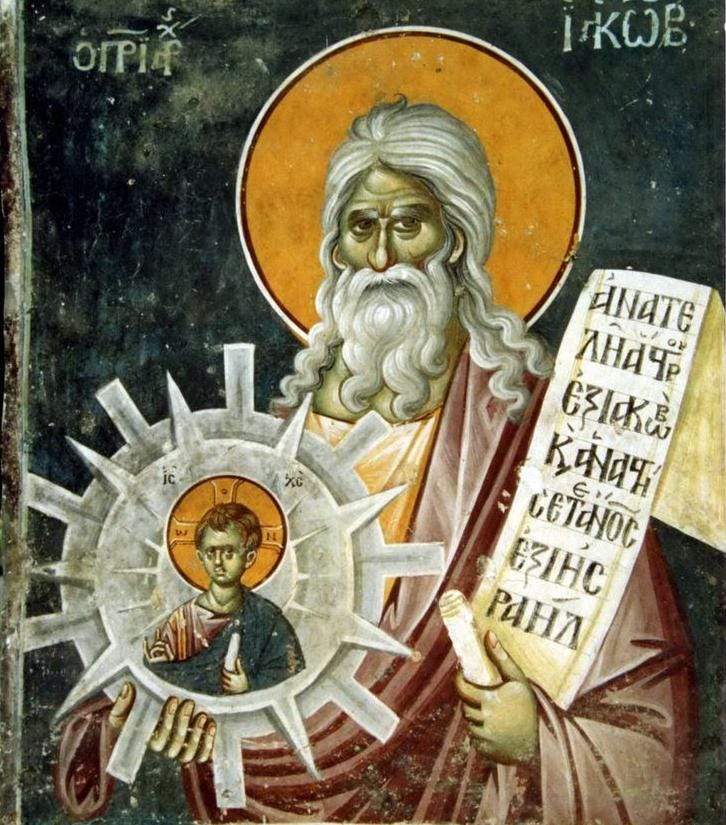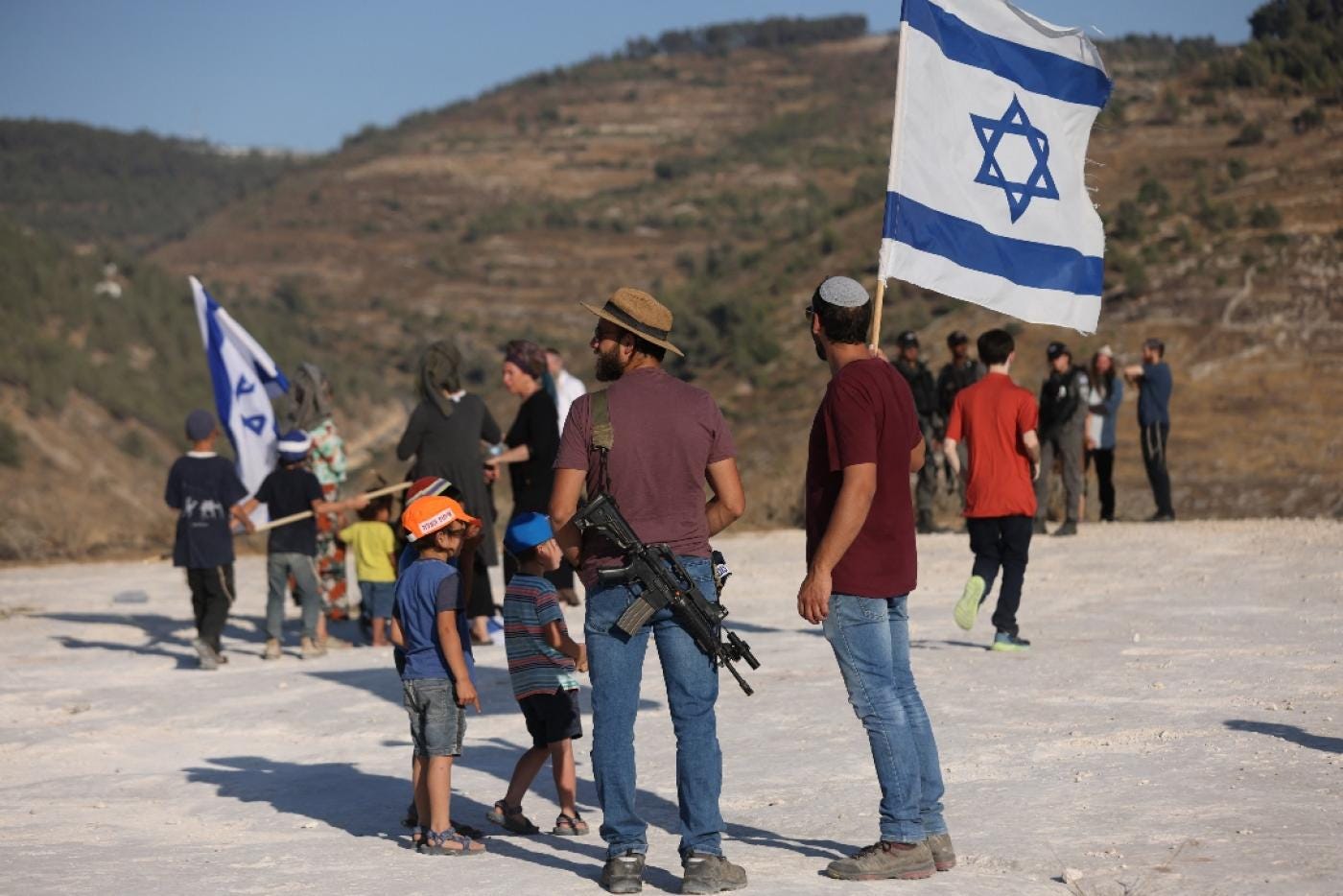Ritual War: Chapter V, by Nicholas Kozlov
Chapter V: Red Oil
Chapter Five of Ritual War by Nicholas Kozlov analyses the origins of the Caucasian wars, and the Talmudic jihads organized by Imam Shamil and Dzhokhar Dudayev. To grasp the context of this original translation, it is highly recommended to first read Chapter 1, Chapter 2, as well as Chapters 3 and 4 of this book.
The term ‘deportation’ is used to describe the forced temporary relocation of the Caucasus peoples during the Great Patriotic War, known under the code name "Lentil," alludes to the biblical story of Jacob buying Esau's birthright with a bowl of lentil stew (Book of Genesis, Chapter 29). The name of the operation carried a concealed genopolitical significance. This clandestine meaning represents a tactical Talmudic deceit, a cunning and deeply calculated operation to seize and increase the moral and material capital of the highland Galachic Internationale, parasitizing on the naïveté of the people of Southern Russia.

By buying the birthright from his older brother for a bowl of lentil stew, Jacob, on the advice of his mother Rebecca, dresses in goat skins to imitate Esau's hairy skin and at the same time deceitfully asks the blind Isaac for the paternal blessing that belongs to his older brother. Donning a goat or sheep skin signifies a second birth, an elevation of genopolitical status in the rituals and mysteries of ancient world religions.
The Gospel expression “wolves in sheep's clothing" (Matthew 7:15), used to denote a profaned initiation, is apparently an allusion to an ancient ritual of altering one’s sacred status, performed by dressing in the skin of a sacrificial animal. In ancient societies, this was often associated with the transition from one social layer, or caste, to another. Donning the skin of a sacrificial animal was used not only to elevate but also to lower the sacred status of the initiate.

The latter function is reflected in the meaning of the Russian folk tradition (Volga region) when - 'a thief caught red-handed,' is led through the village, wearing the skin of the stolen animal. It is noteworthy that in the Hittite ritual, a person dressed in sheep skin howls like a wolf. In the “male unions" of Dagestan and Chechnya, the ritual wolf mask was made from goat skin.
There are, as is well known, two types of robbery connected to the crime of murder. In the first case, the property of the murdered person is appropriated, while in the second case, the murder of the creditor who has lent money or property is arranged. The red Communist government in Moscow, immediately after the end of the Civil War, placed the descendants of the ancient Khazars in the North Caucasus, to rule over the Russian population, giving them the opportunity to occupy the lands and homes that belonged to the White Cossacks. The command of the Red Army had a ‘directive to transfer all property of the evicted Cossacks to the poor Chechen population’ (Victor Stepanov, ‘The Battle for "Nord-Ost’, 2003, p. 120).
The mass deportation of the Karachays, Chechens, and Crimean Tatars, which began in 1943, was essentially aimed at saving the relic ethnic groups within these peoples from the vicissitudes of World War II.
‘Why did Zhukov end up in Odessa after the war? (...). The disgraced marshal was given a good chance at rehabilitation: Stalin planned to punish Turkey for its openly pro-German stance in 1941-1944. He wanted to seize the straits and create a 'Greater Armenia' on the Asia Minor peninsula. This also includes the case of the delayed withdrawal of Soviet troops from Iran (Iranian Azerbaijan) and intrigues with Kurdish insurgents. But the Americans had the atomic bomb in their arsenal - ultimately, the Generalissimo had to back down’ (Archpriest Pavel Boyankov, ‘The Decembrists of Marshal Zhukov’).
The coordinated nature of the relocation of the highlanders, which took place without significant incidents, is explained by the centuries-old ethno-religious traditions of the Mountain Jews, rooted in the theoretical ethics and practice of the Talmud. The NKVD special operation to relocate the Chechens, codenamed "Lentil," was significantly different from the methods of deportation used in the 1930s against the "dekulakized" and "de-Cossacked" Cossacks, residents of Ukraine and Central Russia, who were first robbed and then transported to remote areas of Siberia and the Far East, simply left to their fate. According to a participant in these events: ‘The Chechens were not mistreated. If you tried to touch them, you'd be court-martialed immediately, it was strict about that then’ (Stepanov, p. 147).
An FSB general who participated in the last Chechen war writes:
‘The issue of the monetary savings that the Chechens had accumulated, took upon itself a special significance. Even though many Chechens and their families had accumulated considerable capital through speculation, and often theft, it was decided not to confiscate their money and valuables: they needed to settle in new places. According to intelligence data, some Chechens and Ingush had two to three million rubles (the cost of an airplane or a T-34 tank). Under these conditions, a secret decree of the State Defense Committee allocated 6,000 tons of flour and 3,000 tons of cereals to provide the relocated people with food. As loans, special settlers were to receive (and did receive) 5,000 rubles of credit per family with a repayment period of up to 7 years. In addition, each family received one head of cattle to compensate for the livestock and grain left behind. In the proposed resettlement areas, more than 75,000 housing units suitable for living were prepared, including 60,000 by densifying the local population. Sixty percent were allocated land plots. They were provided with 11,000 baths, and 2,100 medical workers were mobilized. Food stations operated at 37 locations. Each resettler was allocated 6 rubles per day...’ (Alexander Mikhailov, ‘Chechen Wheel. A FSB General Testifies’, 2002, pp. 18-19).
Witnesses recount that during this forced highlander exodus. These new and special settlers traded clothing and valuable items with local residents in exchange for flour, which the locals did not have.
The Book of Exodus describes how, before fleeing Egypt, the Jews plundered the Egyptians. ‘Now the children of Israel had done according to the word of Moses, and they had asked from the Egyptians articles of silver, articles of gold, and clothing. And the LORD had given the people favor in the sight of the Egyptians, so that they granted them what they requested. Thus they plundered the Egyptians’ (Exodus 12:35-36). In a similar manner, Jews in the Middle Ages used this method of acquiring material wealth from the peoples who sheltered them when they were expelled from European countries until they figured out to be let go with promissory notes instead of gold and goods, which subsequently made expulsions unnecessary. The Chechen deportation, carried out without confiscating money and valuables acquired through clearly non-labor incomes, remind you of the events during the Jewish escape from Egypt described in the Book of Exodus, and the attempted acquisition of moral capital as ‘victims of genocide’ – a clear case of wolves in sheep's clothing.
The targeted filtration conducted during the campaign to return the Chechens to their places in 1957 contributed to an even tighter squeezing out of Russians and ensured the victory in internal clan struggles and the securing of all important party-state and economic positions by representatives of Khazar-Jewish clans. Those who had large sums of money or connections with the KGB were the first to return.
‘In February 1944, Dzhokhar Dudayev and his parents were deported to Kazakhstan. He grew up in Pavlodar and South Kazakhstan regions of the Kazakh SSR. In 1957, he returned with his parents to the Chechen-Ingush ASSR. For many Chechens, such an event came two decades later. What was the reason for such favor towards the Dudayev family? There are many versions, but the most likely one is this: without connections to the state security organs, such an early return would have been impossible…’ (Alexander Mikhailov, p. 175). Ahmed Kelimatov provides evidence that Dudayev was a KGB agent operating under the pseudonym "Kazbich" (Kelimatov, p. 553).

‘Returning Chechens and Ingush from special settlements, as “victims of Stalin's personality cult,” began to receive benefits and privileges unavailable to people of other nationalities. For example, apartments intended for veterans and disabled invalids of the Great Patriotic War were instead given to those returning from exile’ (Stepanov, p. 154).
During the deportation of the Chechens from the North Caucasus, the infrastructure that had been destroyed during the war was rebuilt through the efforts of Russian settlers. This infrastructure was then transferred to the returning Chechens on the Talmudic terms of "Chazakah."
From a documented complaint by Russian kolkhoz members of the Novoselsky district of the Chechen-Ingush ASSR to the Soviet government:
‘We accomplished building a hydroelectric power station, we managed to build a cultural center in the district, as well as many public buildings, including various types of livestock farms. Today, our newly planted gardens and vineyards are flourishing. On 1,000 hectares, kolkhozes and sovkhozes began to harvest rich crops on these lands, and they also developed prosperous livestock farming in all branches of agriculture. For these 12 years, the kolkhoz members did not receive a single kopeck for their labor (...). With the arrival of Chechens and Ingush from Kazakhstan, they mock our achievements, they laugh at us and our culture, they want to turn us into their slaves (...). They are driving Russians out of their homes under various pretexts and intimidations. They explain that the owner of this house will come (not the former owner, but the new 'owner' by the right of 'hazaki' - ed.), he has 5 sons, he is a bandit and will kill you, stab you. These Russian families either sell their house and their property for 300 or 500 rubles and flee, or they leave the house to them and move away before the arrival of the Chechens and Ingush’ (Stepanov, pp. 151-152).





